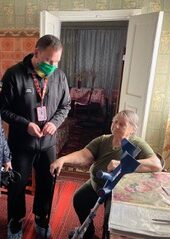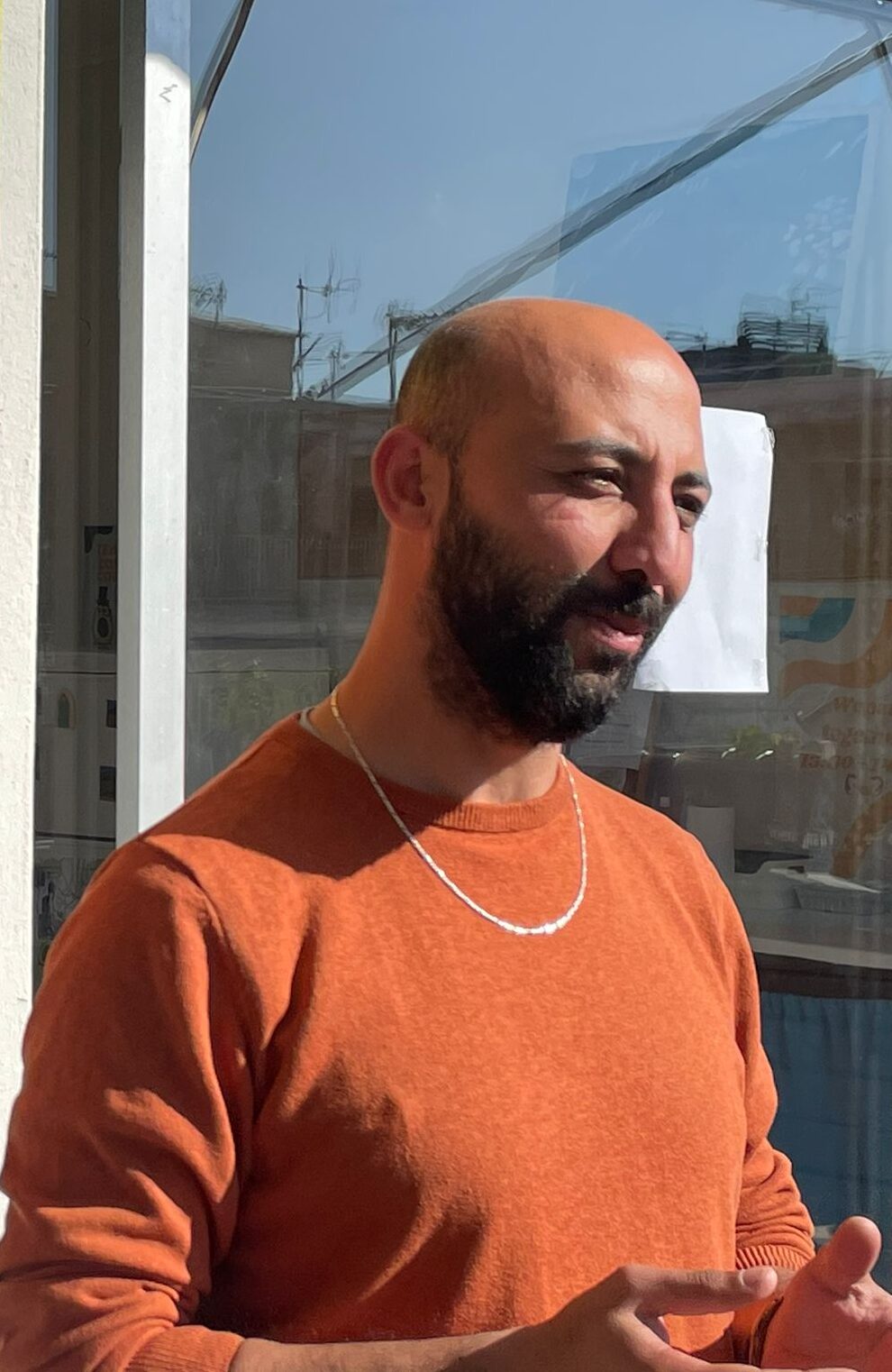


Top: Dobra Fabyka offers medical aid in Ukraine. Middle: Dile, our social media guru, got her training at Pol Foundation. Bottom: Mustafa speaking to us at Velos youth center.
How do the Trump Administration’s cuts in humanitarian funding affect the work of Humanity Now’s aid partners? Unfortunately, the consequences have already been dramatic.
Anna Rollman, our colleague at Dobra Fabryka Ukraina, told us that “the USAID funding freeze is not just a policy shift—it is a shockwave that is being felt across the entire humanitarian system. . . . The cracks are widening, and it is the most vulnerable who are falling through first.”
The problem is exacerbated by the fact that the Ukraine government has already made severe cuts to health care because of the war, making humanitarian aid all the more necessary. Anna described how, last week, a woman named Marina, who has Stage 3 cancer, rode three hours on a bicycle in the frigid cold to reach their medical office. As Anna put it, “there was simply no other option for her to save her life.”
In Thessaloniki, Greece, Irida Women’s Center will not obtain a $25,000 grant from the US-based charity HIAS after HIAS received a stop-work order from the U.S. State Department. The loss of this grant will hamper Irida’s ability to provide legal support to women awaiting relocation. Chloe Kousoula, Irida’s founder, described feeling “shock over what’s been happening,” and told us that the prospects for support have quickly dried up. “We’ve had our eye on several funding opportunities that have literally disappeared overnight.”
We’ve also received a concerning update from the Krakow-based Pol Foundation, whose Social Start Program trains young refugees for careers in social media. If you’ve noticed that Humanity Now’s Instagram and Facebook feeds are suddenly much more active and interesting, that’s because of the talented Social Start trainees from Ukraine, Kyrgyzstan, and Iraq who help us create informative and dynamic content. This program has been a win-win for everybody—improving Humanity Now’s social media reach while preparing young refugees for new careers. But Pol Foundation’s founder, Karol Wilczyński, told us that US policy changes have resulted in a $20,000 cut in the program’s funding.
When the United States steps back from funding global humanitarian relief, other donors have to re-allocate their funds. In Greece, Mustafa Mohammad, director of Velos Youth, anticipates a “shifting dynamic among donors.” Radwan Faashtol, founder of Crisis Management Association, which runs a dental clinic and pharmacy in Mavrovouni Camp, told us that the cuts in aid “will definitely affect donors.” As the U.S. withdraws, “the remaining [donors] will have more struggle since the focus will fall on them.”
Humanity Now strongly condemns these cuts in funding. We believe that a great country can both support its own citizens and provide life-saving aid to the world’s most vulnerable people.
Given the drastic reduction in the US commitment to refugees and migrants, supporting Humanity Now’s partners is vital. We hope you’ll join our effort by making a donation to Humanity Now. Because we are all volunteers and pay all travel and administrative expenses ourselves, 100 percent of your donation will support vulnerable people.

